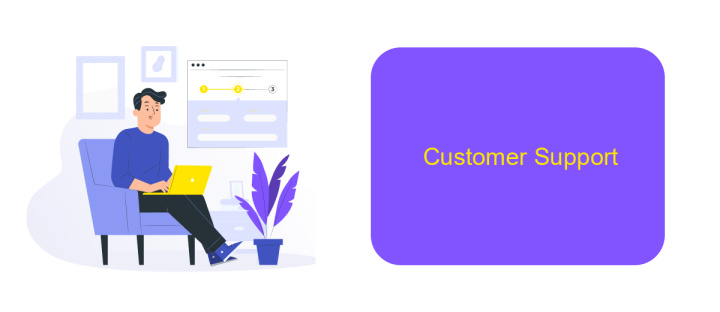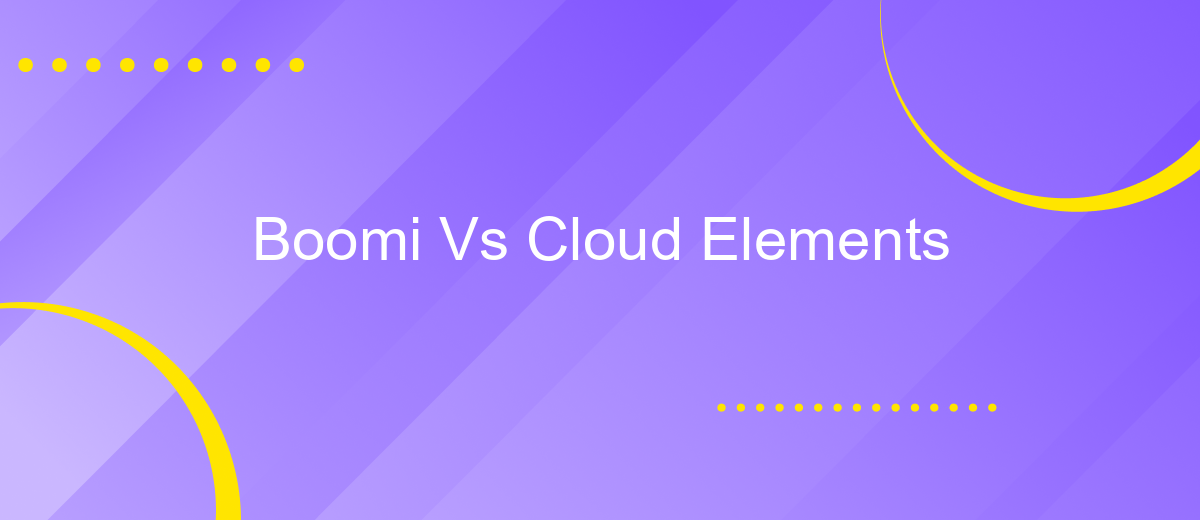Boomi Vs Cloud Elements
In the rapidly evolving landscape of integration platforms, Boomi and Cloud Elements have emerged as leading contenders. Both offer robust solutions for connecting disparate systems, yet they cater to different needs and use cases. This article delves into a comparative analysis of Boomi and Cloud Elements, exploring their features, strengths, and potential drawbacks to help you make an informed decision.
Overview
Boomi and Cloud Elements are two prominent platforms in the realm of integration solutions, each offering unique features tailored to various business needs. Boomi, developed by Dell, is renowned for its low-code approach, enabling users to build integrations swiftly with minimal coding. Cloud Elements, on the other hand, is celebrated for its API-centric model, providing robust tools for API management and integration.
- Boomi: Low-code platform for rapid integration development
- Cloud Elements: API-centric approach with strong API management capabilities
- Both platforms support a wide range of applications and data sources
When considering integration solutions, it is also worth exploring ApiX-Drive, a versatile service designed to simplify the integration process. ApiX-Drive offers a user-friendly interface and supports numerous applications, making it an excellent choice for businesses aiming to streamline their workflows without deep technical expertise. Whether you choose Boomi, Cloud Elements, or ApiX-Drive, each platform provides powerful tools to enhance your integration strategy.
Features

Boomi and Cloud Elements both offer robust integration platforms, but they have distinct features that cater to different business needs. Boomi excels with its user-friendly interface and pre-built connectors, enabling rapid deployment and ease of use. It also provides advanced data mapping and transformation capabilities, which are essential for complex integration scenarios. Additionally, Boomi's AtomSphere platform supports a wide range of integration patterns, including real-time, batch, and hybrid models, making it versatile for various use cases.
On the other hand, Cloud Elements stands out with its API-centric approach, allowing developers to unify multiple APIs into a single, cohesive API. This is particularly beneficial for businesses looking to streamline their API management and simplify integrations. Cloud Elements also offers a rich library of pre-built API connectors, which accelerates the integration process. For organizations seeking a more tailored integration solution, services like ApiX-Drive can complement these platforms by providing additional customization and automation options, ensuring seamless data flow across different systems.
Pricing

When comparing Boomi and Cloud Elements, pricing is a critical factor to consider. Both platforms offer flexible pricing models tailored to meet the needs of different businesses, but there are distinct differences in their approaches.
- Boomi: Boomi offers a subscription-based pricing model with multiple tiers. The cost varies depending on the number of connectors, data volume, and specific features required. They also provide a free trial to help businesses evaluate the platform before committing.
- Cloud Elements: Cloud Elements utilizes a consumption-based pricing model. Charges are based on the number of API calls, connectors used, and the level of support needed. This model provides flexibility but can become costly for high-volume users.
Both Boomi and Cloud Elements provide robust integration capabilities, but businesses should carefully assess their specific needs and usage patterns to choose the most cost-effective option. For those looking for a more straightforward setup, services like ApiX-Drive offer an alternative with competitive pricing and ease of use, making it a viable option for smaller projects or businesses with less complex integration needs.
Customer Support

When it comes to customer support, Boomi and Cloud Elements offer robust assistance to ensure smooth operations and integration setups. Both platforms provide comprehensive support channels, including detailed documentation, community forums, and direct contact options with support teams.
Boomi has a dedicated support portal where users can access a wealth of resources such as knowledge base articles, video tutorials, and live chat support. Their customer support is known for its responsiveness and expertise, helping users resolve issues efficiently.
- 24/7 customer support
- Extensive knowledge base
- Live chat and email support
- Community forums for peer assistance
Cloud Elements also provides strong customer support through various channels. Users can benefit from their detailed API documentation and integration guides. Additionally, Cloud Elements offers personalized support plans to cater to specific business needs. For those looking to streamline their integration processes further, services like ApiX-Drive can be a valuable addition, offering automated integration solutions and expert assistance.
Conclusion
In conclusion, both Boomi and Cloud Elements offer robust solutions for integration needs, each with its own strengths and weaknesses. Boomi stands out with its user-friendly interface and extensive range of pre-built connectors, making it a go-to choice for businesses seeking an all-in-one integration platform. On the other hand, Cloud Elements excels in its API-centric approach, providing greater flexibility for developers who need to customize and manage their integrations more granularly.
Ultimately, the choice between Boomi and Cloud Elements will depend on your specific business requirements and technical expertise. For those looking for an alternative that combines ease of use with powerful integration capabilities, ApiX-Drive is worth considering. It offers a seamless way to connect various applications and automate workflows without the need for extensive coding, making it an excellent option for businesses of all sizes. By evaluating your needs and exploring these platforms, you can find the best solution to streamline your integration processes.
- Automate the work of an online store or landing
- Empower through integration
- Don't spend money on programmers and integrators
- Save time by automating routine tasks
FAQ
What are the primary differences between Boomi and Cloud Elements?
Which platform is more suitable for small to medium-sized businesses?
How do Boomi and Cloud Elements handle data security?
Can Boomi and Cloud Elements be used for real-time data integration?
Are there any alternatives for automating integrations without extensive coding?
Routine tasks take a lot of time from employees? Do they burn out, do not have enough working day for the main duties and important things? Do you understand that the only way out of this situation in modern realities is automation? Try Apix-Drive for free and make sure that the online connector in 5 minutes of setting up integration will remove a significant part of the routine from your life and free up time for you and your employees.


